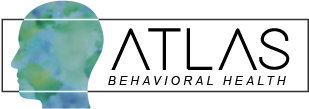
Our Services
Individual Therapy
Individual therapy is when you meet with a therapist
one-on-one.
People of all ages seek individual therapy with an array of presenting concerns and varying goals for treatment.
Cognitive Behavioral Therapy (CBT)
CBT is a specific style of therapy that works to address the connections between difficult thoughts, challenging behaviors, and distressful emotions.
CBT first focuses on increasing the awareness of thoughts and how they impact our behaviors. Then, your clinician can support you in connecting this with your emotional distress, working to change these patterns, and provide you with tools to help build new skills and habits.
Couples Therapy
Couples therapy is when people in a romantic relationship or partnership meet with a therapist together.
While your clinician might have individual appointments initially to understand each partner’s concerns and goals, the majority of sessions will be a collective effort.
Gender-Affirming Surgery Letters
Atlas Behavioral Health is proud to offer letter-writing services for transgender and nonbinary individuals
seeking gender-affirming surgery.
This process would involve scheduling an appointment with our provider Dr. Lindsey Hovan.
Collaboration and Consultation
It may also be beneficial for your clinician to talk with providers from other areas of your life.
In adult individual treatment, this might mean working with your physician or medical/treatment team.
Benefits may include exploring and better understanding how psychological and medical factors might be aggravating or intensifying one another.
This collaboration can also add to treatment progress by learning and implementing specific skills to address how psychological and physical concerns intersect with one another.
For children & adolescents, this might mean working with their school or educational team.
Benefits may include gaining insight into the way your child interacts with others in the school setting.
This collaboration can also provide an opportunity for collaborative brainstorming as well the consistent implementation of interventions within both the classroom and the home.

